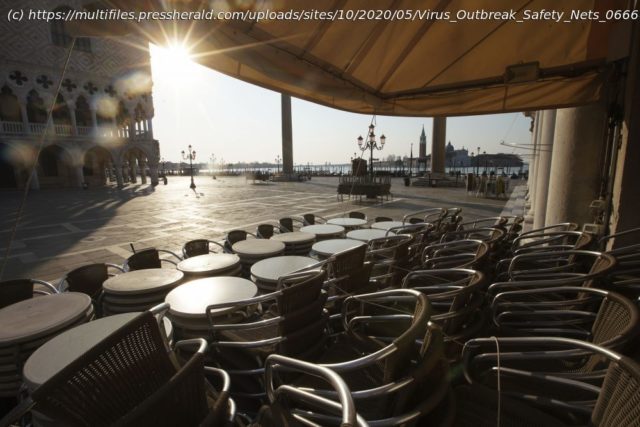In downturns, U.S. employees risk losing their health insurance if they lose their jobs, and their homes through foreclosure. On the other hand, Europeans typically pay higher taxes.
The coronavirus pandemic is straining social safety nets across the globe – and underlining sharp differences in approach between wealthy societies such as the United States and Europe.
In Europe, the collapse in business activity is triggering wage support programs that are keeping millions on the job, for now. In contrast, in the United States more than 33.5 million people have applied for jobless benefits and the unemployment rate has soared to 14.7 percent. Congress has passed $2 trillion in emergency support, boosting jobless benefits and writing stimulus checks of up to $1,200 per taxpayer.
That is a pattern seen in earlier economic downturns, particularly the global financial crisis and the Great Recession. Europe depends on existing programs kicking in that pump money into people’s pockets. The U. S., on the other hand, relies on Congress taking action by passing emergency stimulus programs, as it did in 2009 under President Obama, and the recent rescue package under President Trump.
Economist Andre Sapir, a senior fellow at the Bruegel research institute in Brussels, said budget policy in the U. S. plays partly the role that Europe’s welfare system plays because the American welfare system is less generous and a recession can be much harsher on workers.
In downturns, U. S. employees can lose their health insurance if they lose their job and there’s also a greater risk of losing one’s home through foreclosure. On the other hand, Europeans typically pay higher taxes, meaning they earn less in the good times.
“In the U. S. you need to keep pumping money into the economy so that people continue to be employed, because it is through being employed that they are protected,” said Sapir. “Which is the better system? I’m not going into that discussion because that is really a huge issue.”
The U. S. tends to rank below average on measures of social support among the 37 countries of the Organization for Economic Development and Cooperation, whose members are mostly developed democracies.






